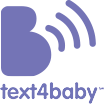Learn More About Your Pregnancy
Dealing with Morning Sickness
Q:
When does morning sickness usually get better?
12 Weeks
Correct!
Morning sickness is considered a sign of a healthy pregnancy and generally gets better by the 12th week pregnancy. For some, a break comes around week 20, and a very small number of women experience it throughout pregnancy.
20 Weeks
Incorrect!
Morning sickness is considered a sign of a healthy pregnancy and generally gets better by the 12th week pregnancy. For some, a break comes around week 20, and a very small number of women experience it throughout pregnancy.
If you get morning sickness, it will likely begin not long after you become pregnant and last until the end of the first trimester. Despite its name, morning sickness can occur at any time of the day and may be mild or severe including everything from feeling nauseated to severe daily vomiting. It can be annoying, but it shouldn’t interfere with your everyday activities.
How to manage morning sickness
For most pregnant women, morning sickness gets better by the start of the second trimester. For others, a break doesn’t come until around week 20. A very small percentage of women experience it throughout pregnancy. While nobody enjoys it, morning sickness is considered a good sign of a healthy pregnancy because it’s triggered by the rising levels of the pregnancy hormone hCG.
Here are some tips to help with morning sickness:
- Eat saltine crackers or something bland as soon as you wake up.
- Wait to brush your teeth until you’ve been up for a while.
- Space out the time between eating and drinking.
- Eat small, frequent meals (high protein, high carbohydrate) or snacks every two to three hours.
- Only drink small amounts of liquids at a time.
If none of these things work and you’re losing weight, vomiting more than once or twice a day, or the vomiting is interfering with your normal daily activities, ask your provider about anti-nausea medication.

